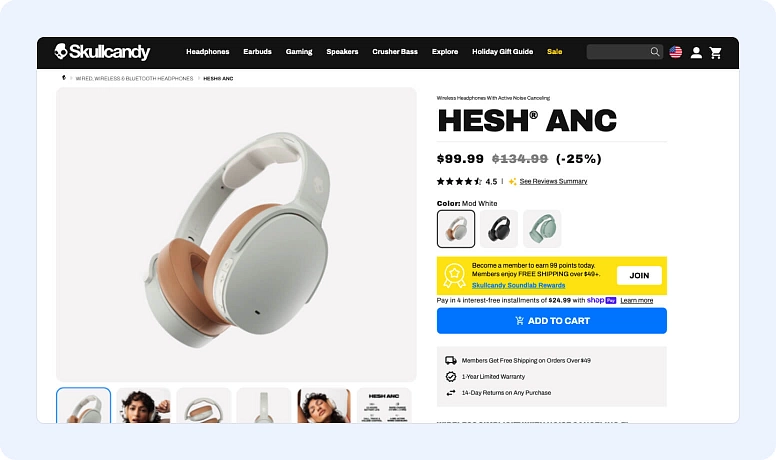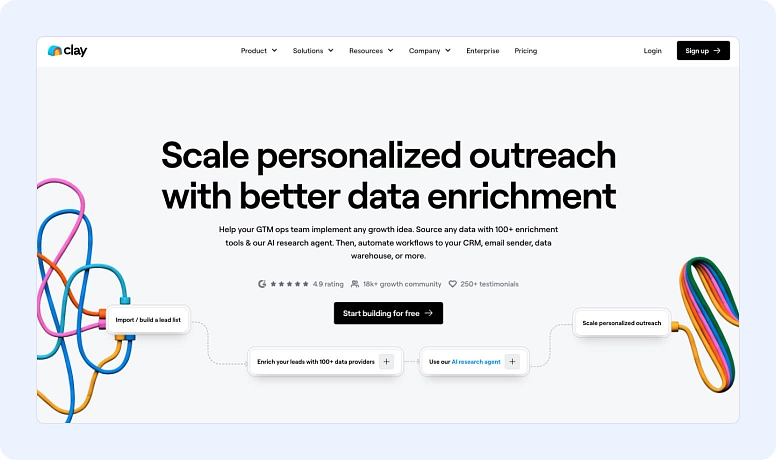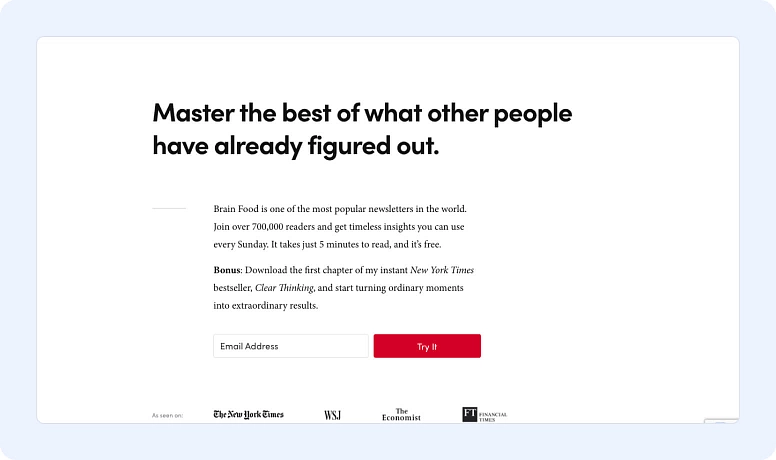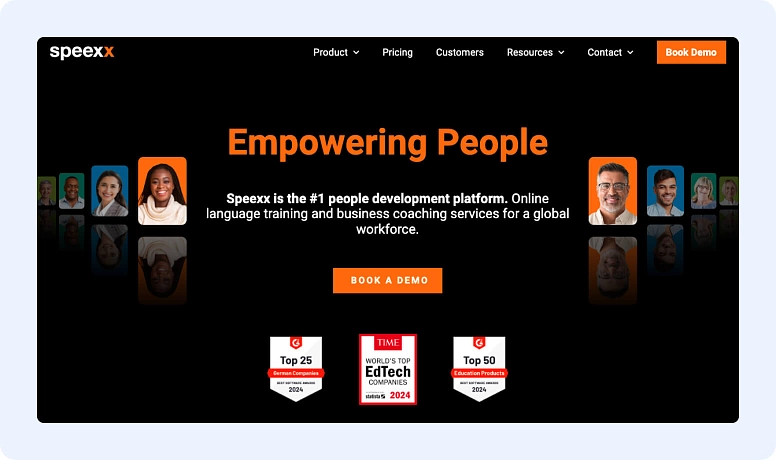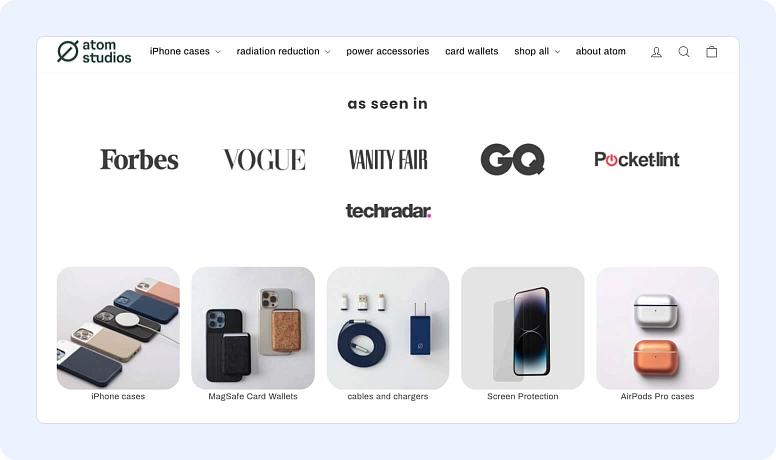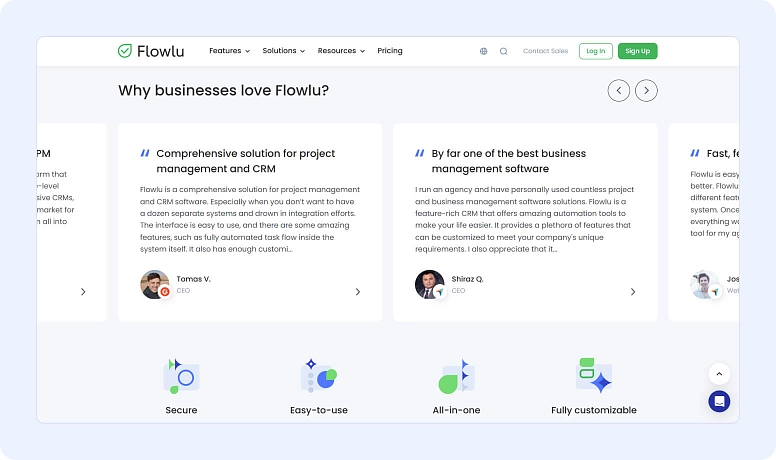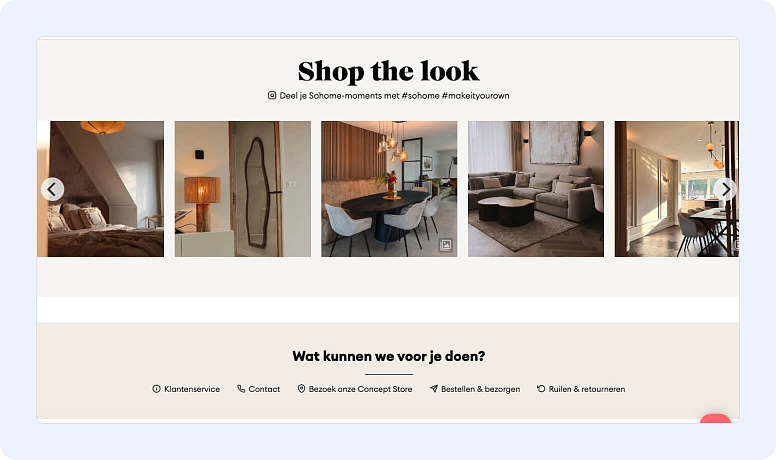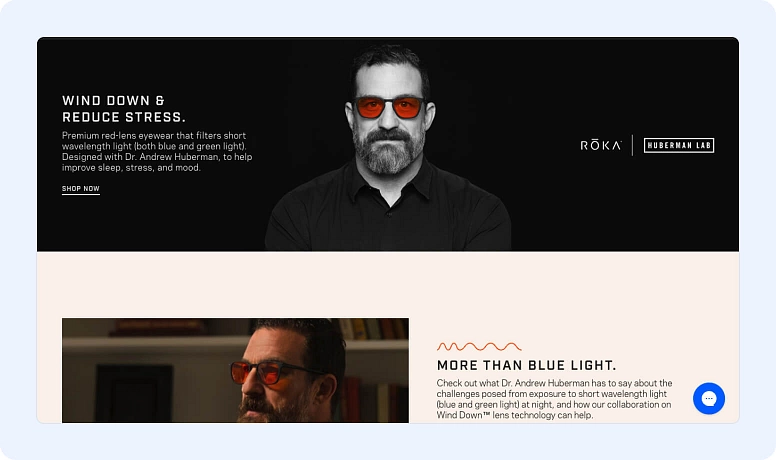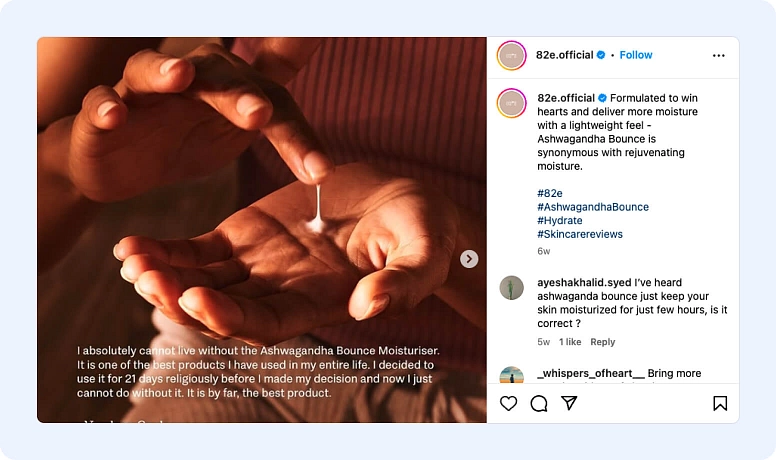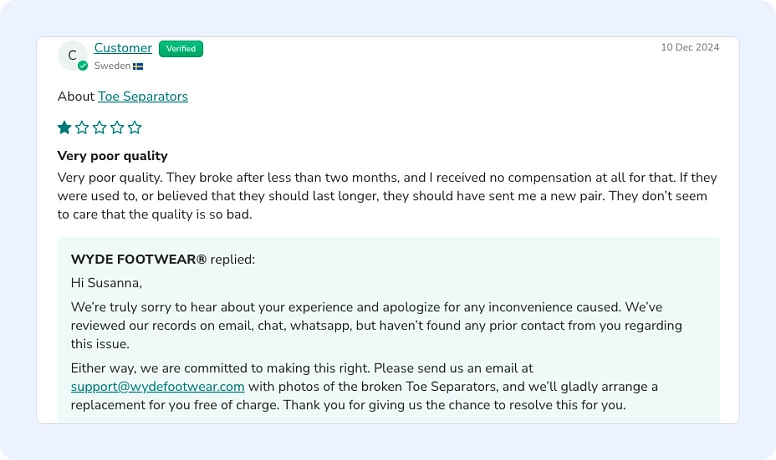8 Effective Ways to Use Social Proof to Boost Sales and Grow Your Business
- Support Website Conversion Elements with Appropriate Trust Signals
- Show Off Reviews, Ratings, and Mentions from Trusted Sources
- Highlight Authentic Customer Reviews
- Show Off Relevant Certifications
- Collaborate with Well-Regarded Brand Ambassadors
- Use Social Proof to Complement the Sales Funnel
- Create a Customer Referral Program
- Don't Ignore Negative Feedback
- The Role of Social Proof in Driving Business Success
It's not easy to build a successful and resilient business. It takes a lot of work — especially in today's competitive landscape. Nonetheless, you can make your goals (at least) a little bit more attainable. How? — By learning how to differentiate your brand, establish credibility, and position your products as the best choice for your target audience. And, without a doubt, leveraging social proof could just be the way to do all that.
In this article, we'll dive into the most effective ways to use social proof to boost sales and grow your business. From choosing the optimal formats for your brand's needs to showcasing reviews in ways that inspire conversions to leveraging expert relationships to support your value propositions, we'll cover all the best ways to earn and retain your prospects' trust.
Support Website Conversion Elements with Appropriate Trust Signals
What does it take to convince consumers to click that "Buy" button? Consumer behavior research suggests that trust plays a significant role in encouraging conversions.
The 2023 Collapse of the Purchase Funnel report from Edelman found that 88% of people see brand trust as an important purchase consideration. PWC discovered that between 30% and 32% of buyers rely on social proof (including reviews and peer feedback) when collecting pre-purchase information. And 77% of shoppers specifically seek out websites with ratings and reviews, while 45% won't consider purchasing a product if there's no social proof to back up its effectiveness.
With this in mind, it's essential to leverage social proof in your digital marketing strategies, but that's not all. To boost sales, consider supporting website conversion elements with different trust signals.
So, what's the best way to do this? Well, that depends on how you want to present and position your business.
You may want to emphasize the quality and effectiveness of your solutions. In this case, consider displaying ratings near the "Add to cart" button. If you want to remove payment-related conversion obstacles, you need to display badges that show you accept reputable payment methods. Skullcandy does both of these things on its product pages.
If your lead-generation goals relate to encouraging free trial sign-ups, you'll want to do something similar to Clay. This brand uses three different social proof elements, along with microcopy in its CTA, promising a free test period to support its main conversion element.
Finally, if you're looking for ways to use social proof to grow your business, don't forget that generating leads offers just as much value to your organization's success as converting customers. So, explore ways to use trust signals to inspire newsletter sign-ups. Farnam Street does this beautifully by inviting web visitors to join its existing 700,000 readers.
Show Off Reviews, Ratings, and Mentions from Trusted Sources
Although any format of social proof can be a great way to contribute to your brand's growth, it's good to remember that consumers trust some sources more than others.
Surveys have found that the top sites shoppers use to look for feedback when evaluating local businesses include Google (the no. 1 choice for 82% of people), Facebook, Yelp, and Tripadvisor. When shopping online, they read reviews on Amazon. Still, it's worth noting that other retail websites like Target and Walmart also represent a trustworthy source of social proof. Furthermore, independent review sites are also highly trustworthy.
So, when choosing reviews and testimonials to showcase on your website, consider where they come from. Ideally, you want to source from a platform your customers already trust.
For instance, a brand such as Bay Alarm Medical, which targets a specific segment of the general population, has an excellent reason for highlighting Google Reviews on its homepage. After all, everyone has heard of the search engine, and a 4.7 rating based on 12k reviews is a great indicator of a high-quality service.
However, if your target audience includes B2B or software buyers, a source like G2 would work far better. This is why Speexx uses G2 rating badges on its website, knowing that these work great for establishing the brand's credibility in the SaaS industry and testify to the quality of Speexx's products.
Lastly, knowing that showcasing social proof from trusted sources does a marvelous job of boosting brand trust and inspiring conversions, don't hesitate to source mentions from publications that are relevant in your industry. Atom Studios does precisely this on its website, pointing out that its products have been featured in magazines like Forbes, Vogue, GQ, and TechRadar.
Highlight Authentic Customer Reviews
When attempting to earn and retain your prospects' trust — especially if you're trying to boost sales — the last thing you want to do is make them think that the social proof about your brand isn't genuine.
A recent survey discovered that 75% of consumers worry about fake reviews, and more than half are taking extra precautions to verify the legitimacy of online stores.
With this in mind, authenticity needs to be one of your top priorities when selecting what social proof you want to highlight on your digital distribution channels.
For starters, if you're not automatically sourcing ratings and feedback from highly trusted platforms, be careful when choosing what reviews to accentuate.
Ideally, your most prominent social proof should mention the unique pain points your product or service has solved for a customer or mention specific details about the customer experience you provided.
Another great method of maximizing the conversion-boosting potential of your social proof is to leverage user-generated content.
Something as simple as sourcing customer photos or videos from social media can be a great way to show off your solutions as they appear/perform in real life and demonstrate the validity of your value propositions.
Finally, if you're targeting a more selective audience, consider collaborating with some of your satisfied customers to create social proof content that elevates purchase intent by addressing the distinct ways your brand can help prospects.
For example, Gladly has a dedicated Customers section on its website, where it publishes in-depth case studies covering the challenges it has tackled for some of its most famous clients and the results its product has made possible.
Show Off Relevant Certifications
The primary purpose of supplementing your online presence with social proof is to elevate conversion rates via brand trust.
However, note that showcasing social proof throughout your digital presence offers an additional benefit. It can be an excellent way to create transparency.
Research shows that transparency is a crucial factor that affects consumers' purchase decisions. In fact, most people expect brands to be transparent. Transparency can be a critical signal that demonstrates that a business stands behind its offer, including the quality of its products and its dedication to social responsibility.
Of course, some social proof formats work better at communicating transparency than others.
For instance, reviews can provide potential customers with info about the shopping experience they can expect from your brand. Nonetheless, they're not always effective at supporting ESG claims or backing up the effectiveness of your solutions.
In these situations — and in the case that your brand operates in low-trust industries like health or finance — third-party certificates could help you reach your goals.
Collaborate with Well-Regarded Brand Ambassadors
Another excellent tactic to boost awareness and sales with social proof is collaborating with the people your ideal customers trust. In 2024, these include scientists and experts.
Research data shows that 66% of Gen Z consider scientists and experts to be the most trustworthy brand spokespeople. The latest research demonstrates that 74% of people trust scientists just as much as their peers — especially regarding innovative solutions.
So, to boost your brand's reputation, look for ways to connect and collaborate with well-regarded industry experts.
Influencer marketing can be a great place to start when growing your brand. However, if you want to maximize the credibility of your online presence — especially in niche industries — then it's essential that you explore other, more established voices to represent your business.
For example, check out how Roka does it for its Wind Down product series. Knowing that its claims include health benefits, this business decided to seek out the ambassadorship of Andrew Huberman — a neuroscientist with a massive following. By doing this, Roka unlocked the benefit of elevating product confidence. More importantly, it discovered a way to reach a large health-focused audience whose trust it can gain thanks to working with the right ambassador.
Or, if you want a subtle (but more consistent) method to build brand trust, you could combine this type of social proof with your content marketing strategy.
For example, knowing how important scientific data and information validity are to its customers, Eachnight uses author profiles and verification badges to elevate its Best Mattress guides. These page elements communicate that the brand's content is written and medically reviewed by sleep and health experts. They also elevate transparency while demonstrating the brand's complete dedication to prioritizing customer value.
Use Social Proof to Complement the Sales Funnel
In some cases, the best ways to incorporate social proof into your sales strategy require you to go deep into the motives and factors influencing consumer behavior. In others, the best way to boost conversions simply requires that you showcase this type of content at the right time in the right place.
Now, studying and optimizing the conversion phase of the sales funnel can be a great way to grow your business. However, if you want to position your business as a competent and trustworthy entity, why not incorporate social proof into the early stage of the buyer's journey? This tactic can yield excellent results while posing almost zero risk (unless, of course, you use inauthentic reviews).
For example, if you look at skincare brand 82°E, you'll see that a significant portion of its awareness-stage content on social media features customer feedback. This strategy allows the business to build brand and product awareness. It also establishes brand credibility from the get-go, maximizing new leads' chances of engaging with the brand and converting into customers down the road.
Create a Customer Referral Program
If you're just getting your business off the ground, focus on converting new customers. But if you're looking to grow your brand, don't forget about the importance of nurturing customer loyalty.
Invest in customer retention. It's not just a great way to improve your bottom line while keeping your marketing spend low. More than that, having a loyal and vocal customer base can be a marvelous piece of social proof in itself.
Research shows that 86% of loyal customers are likely to recommend a brand to their friends and family. 66% will write a positive online review. And 46% will remain loyal even after a bad experience.
And what better way to utilize social proof to inspire loyalty than to develop a customer referral program? A recent study discovered that referred customers buy more and bring in 30% to 57% more new customers than others. Why? Because doing so allows them to feel close to and connect with peers who share similar interests and values.
Consider creating an incentive program. That way, you can encourage existing customers to become brand ambassadors.
Don't Ignore Negative Feedback
Finally, prepare for the possibility that some of your customers may have poor experience with your business. When this happens, it's essential that you know how to handle negative feedback, ideally in a way that benefits (not harms) your reputation.
So, what do you do if you get a negative review? Well, here are a few ground rules to follow:
- Always respond. 53% of people expect brands to respond to negative feedback within a week, and 45% are more likely to revisit a business that addresses poor reviews.
- Apologize and thank customers for the feedback. After all, a poor review isn't simply a criticism of your business or product. It's a valuable chance to identify improvement opportunities, which could help you develop a better solution or CX that will drive brand growth in the future.
- Offer to make things right. You can't change the past, but you can choose how you want to go into the future. So, if you get negative feedback, take responsibility. Offer to fix your mistake and explore ways to fix a broken customer relationship. This will show future prospects that you're dedicated to customer satisfaction, and it will significantly increase their chances of choosing to do business with your brand. Here's a fantastic example from Wyde Footwear:
The Role of Social Proof in Driving Business Success
There are many methods to attract and convert your target audience. However, if you're trying to build a successful brand that can stand out from the competition, start by investing in brand trust.
By incorporating social proof into your marketing strategies, you can effectively achieve that goal. Moreover, you can create unique opportunities for engaging prospects, encourage customer loyalty, and even establish your business as the go-to in your industry.
Try out the tactics from this guide, and you'll surely see a boost in your conversion rates.
Social proof is just a fancy way of saying that people trust what others say about your product. It’s using things like customer reviews or expert endorsements to show potential customers that others believe in what you’re offering.
The best way is to put them where they’ll be noticed—like near the "Buy" button or on your product pages. Make sure to highlight reviews from trusted places, so people feel confident that your product is worth it.
Not at all. If you handle negative feedback well—by responding quickly and offering solutions—it can actually show that you're committed to improving and keeping your customers happy. That can build even more trust.









